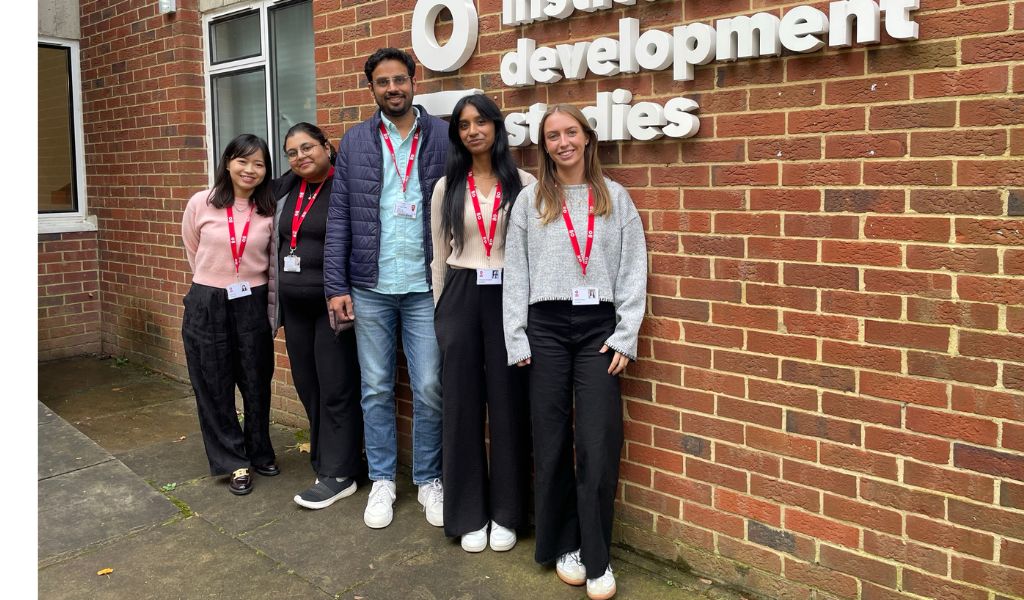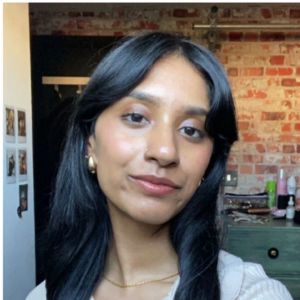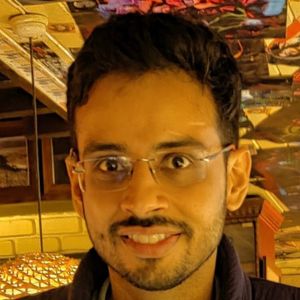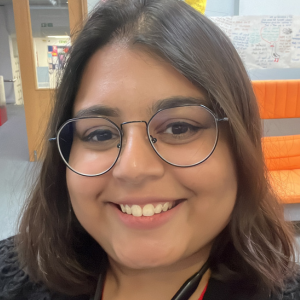October 17 has been recognised as the International Day for the Eradication of Poverty by the United Nations since 1992, although its origins date back to 1987 when a gathering of 100,000 people in Paris declared poverty as a violation of human rights.
Poverty eradication is the ultimate measure of development effectiveness, and our MA in Poverty & Development is a key part of our postgraduate programme. This year we welcomed a diverse and vibrant cohort, who join us from around the world to study alongside course teachers who are at the cutting edge of research into tackling chronic poverty and getting to zero extreme poverty and deprivation.
To mark the International Day for the Eradication of Poverty, the class of 2024-25 shared why they have chosen to study this theme, and what their aspirations are for the future.

Risa Kato
Risa Kato works as a consultant at Ernst & Young in Japan, providing advice to private sector clients in the area of sustainability, such as climate change and human rights, a role she will return to when she completes her studies.
“This MA will help me gain professional knowledge and skills in identifying issues, designing policies for reducing poverty, and implementing and evaluating approaches,” she says. “I hope it will enable me to apply professional knowledge and skills in real-world contexts to identify the root causes of poverty, design impactful policies, and implement strategies that reduce poverty and inequality. In future, I aspire to work for an international organisation such as the United Nations or an NGOs, as a specialist in poverty reduction.”
Thihanuha Sivabalan
Thihanuha Sivabalan decided to transition to MA Poverty & Development at IDS after completing her Bachelor’s in International Development. “Whereas my undergraduate studies enabled me to immerse myself into the complexities of global inequalities facing marginalised communities, I wanted to develop more advanced, context-specific knowledge and skills that will be valuable in a professional career within development,” she said. “Poverty is one of the most pervasive, complex and impactful humanitarian issues in our contemporary world and thus, the eradication of poverty deserves much more critical attention. As someone with parents who were brought up in an underdeveloped and conflict-affected nation, poverty has affected them deeply and in turn, holds a personal weight for me; therefore, learning more deeply about how to effectively uplift the marginalized voices in impoverished contexts is very important to me.
Poverty is one of the most pervasive, complex and impactful humanitarian issues in our contemporary world and thus, the eradication of poverty deserves much more critical attention.
My post-master’s aspirations are to work with grassroots NGOs in their design and implementation of programmes or policies aimed at tackling the root causes of poverty. This master’s course will provide me with the opportunity to participate in research projects where I can learn from professionals in the development sphere and apply my academic knowledge to real-world scenarios. Ultimately, a Masters in Poverty and Development will enable me to gain the interdisciplinary knowledge necessary to engage with the research, design, implementation and assessment of national and international efforts to alleviate and eliminate poverty and I couldn’t be more excited.”
Niharika Srivastava
Before coming to IDS, Niharika Srivastava worked at IPE Global, an international development consulting firm. “I evaluated programmes focused on agri-food systems, climate change and gender equality and social inclusion across South Asia and Africa,” she says. “My background in economics and experiences in the field in India, Bhutan, Bangladesh and Lesotho made me question why so many programmes fail to reach those most in need. I realised the critical importance of understanding not just what works, but also why, for whom, and in what contexts. IDS’s commitment to combining research with action, underpinned by rigorous mixed-methods research and evidence, made it the ideal place for me to delve deeper into the complexities of poverty.
Through this programme, I aim to strengthen my ability to analyse the drivers of poverty and inequality, focusing on how to generate and use evidence to create impactful solutions. Understanding what works—and more importantly, what doesn’t—is crucial in designing interventions that are not only effective but sustainable. By enhancing my skills in research design and evaluation, I hope to contribute to policies and programmes that are grounded in robust data, ensuring they truly address the needs of those they are meant to serve. Ultimately, I aspire to work with international development agencies, using my knowledge to help develop evidence-based solutions that tackle poverty at its roots.”
Chloe Tomkins
Chloe Tomkins’ experience mentoring refugees through STAR (Student Action for Refugees) and contributing to youth engagement initiatives in Fiji with ThinkPacific gave her a unique perspective on the intersection of poverty, social justice and sustainable development. “I chose the MA in Poverty and Development due to my commitment to understanding and addressing the systemic inequalities that hinder sustainable development in the global South,” she says. “This programme offers a unique opportunity to explore the multifaceted dimensions of poverty through a multidisciplinary lens, emphasising the interconnectedness of social, economic and political factors. IDS’s global reputation, combined with its emphasis on applied research and real-world policy impact, provides an ideal environment for examining contemporary development challenges.
Engaging with leading scholars and practitioners will allow me to critically assess innovative strategies and explore their applicability in various contexts to improve well-being and social equity. After completing my MA, I plan to pursue a career in policy development or research within the international development sector, focusing on poverty reduction, social protection and inclusive growth. My ultimate goal is to work on sustainable development initiatives that uplift marginalised communities in the global South, ensuring that their voices are heard and their needs addressed.”
Ayush Punia
Before coming to IDS Ayush Punia worked as an officer in the Indian Economic Service (IES) – a specialist service in the Indian government that contributes to economic policy analysis. “During my time as an IES officer in the Ministry of Rural Development (MoRD) I saw how measures of poverty/deprivation are utilised in policy programmes, particularly for identification of beneficiaries,” he says. “Exclusion and inclusion errors in identification can have wide ranging implications for the performance of Government welfare initiatives. This makes understanding the feedback loops between poverty and development critical. This is what lead me to study MA Poverty & Development.
When I graduate, I intend to continue specialising in the subject by pursuing a PhD. In the medium to long term, I aspire to leverage my academic experience for policy advisory roles within the Government.”
For more information about postgraduate study, you can subscribe to our Learn newsletter.





